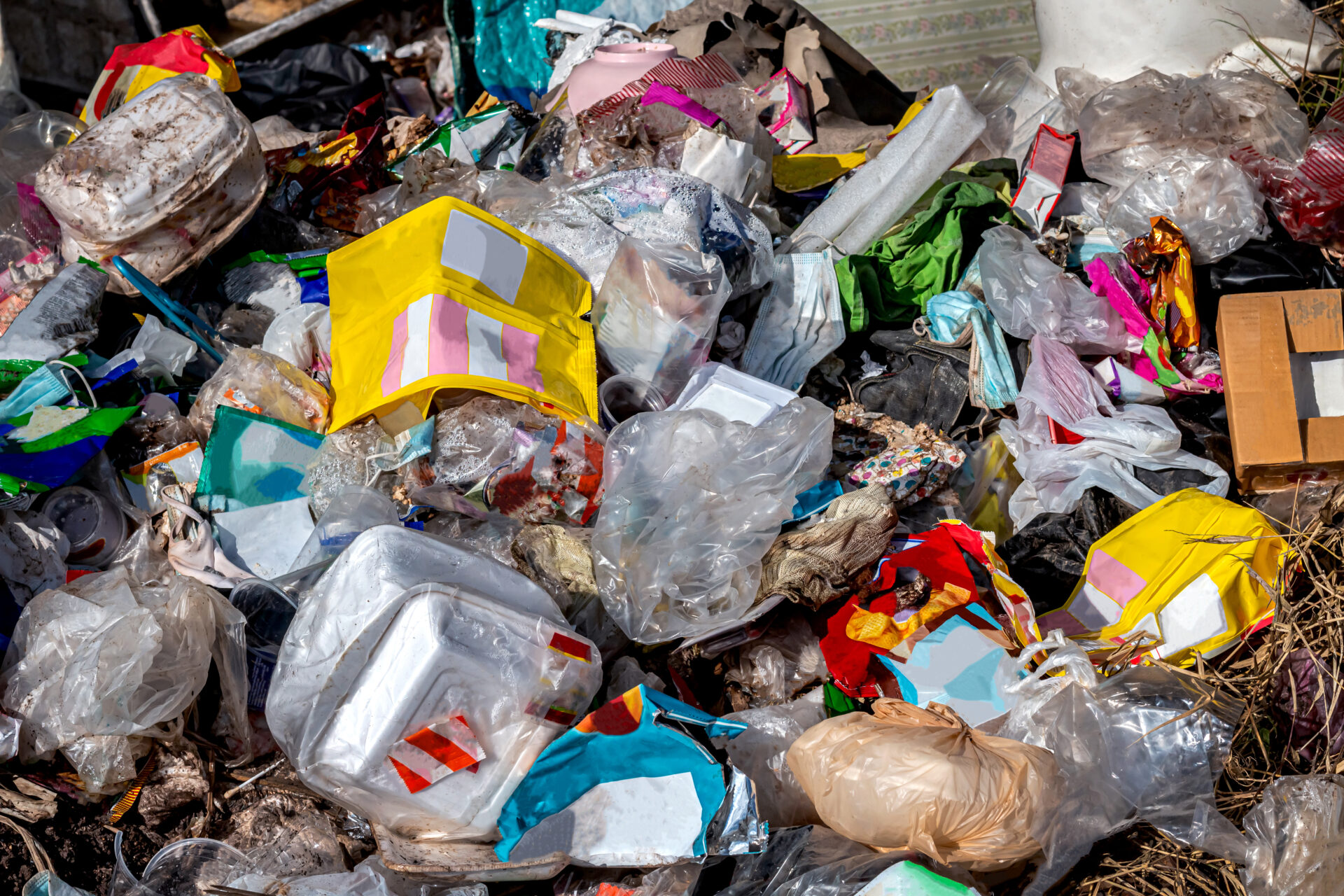
On a regular basis, I find my trash can overflowing with needless packaging waste. It’s the small online order that shows up on my doorstep in a comically large box. It’s the sprawling mess of bubble wrap, air pillows, and foam peanuts I have to clean up after opening a new purchase. It’s the layers of plastic wrap I peel off groceries while cooking a meal.
No matter where I shop or how hard I try, the simple fact is that I always end up with an enormous amount of packaging waste. Sadly, this experience isn’t unique to me. Most households face the same problem. According to the Environmental Protection Agency, roughly one-third of all household trash is packaging. And a lot of that packaging is unrecyclable plastic that undoubtedly gets buried, burned, or littered.
Confronting this mountain of packaging waste feels impossible. Especially as our recycling systems fail us. And as corporations find new ways to make their products more disposable and polluting. But that’s why I care so much about this issue – and why I spend every day pushing for changes to our waste systems. Because, while our waste crisis and our plastic problem may feel impossible to solve, I know they’re not.
Change is on the horizon. Over the last few years, an old policy has captured the imaginations of decision makers in addressing needless single-use packaging waste. It’s called producer responsibility.
In theory, producer responsibility requires companies that create hard-to-recycle products to take responsibility for the end-life management of those products. The idea is rooted in equity. Instead of consumers and local governments paying to manage a complex, growing stream of waste, make the companies that create and design unrecyclable products bear the financial cost of dealing with this mess. After all, they’re the ones designing their products to be disposable and unrecyclable in the first place.
Producer responsibility programs have been successfully implemented around the world for decades. Typically, they focus on hard-to-manage waste, like car batteries, paint, tires, and beverage containers. But these programs are evolving.
At their best, producer responsibility programs create unrivaled waste management and recycling systems. Take beverage containers. More than 40 countries and 10 U.S. states have some form of producer responsibility program for beverage containers. Commonly known as “Bottle Bills,” these programs have been around since the 1970s. Bottle Bills are the most effective recycling systems ever created, at no, or little expense to the taxpayer.
Over the last few years, producer responsibility for packaging has seen a resurgence in the United States. Specifically, as a possible solution to our growing plastic problem. In fact, in 2021, Manie and Oregon passed the first producer responsibility for packaging laws in the country. This year, Colorado and California followed suit. This wave of new legislation has created significant buzz and is garnering attention from legislators all across the country.
But, while some see this as a resounding victory, the truth is much more complex. In fact, these laws more accurately show just how hard it is to require companies to take responsibility for the waste they create. And some of the support comes from companies who wish to pretend to recycle packaging, while actually continuing to burn and bury it.
You see, the devil is in the details. For producer responsibility laws to be successful, they need to include specific and enforceable standards for reducing and recycling waste. Without them, our country will never address the root of the problem. Unfortunately, what I see happening is plastic and packaging producers trying to co-opt producer responsibility legislation. They do so by throwing support behind weak and ineffective bills. For them, this as an opportunity to appear as though they’re addressing consumer concerns. When really, they just continue churning out toxic packaging. Some companies go even further – using producer responsibility laws as a way to advance false solutions, like burning plastic waste. California’s new producer responsibility for packaging law, for instance, allows for plastic burning. This creates avenues for polluting technology to count as recycling – but, it’s not. In reality, these corporations continue to maximize profits at the expense of our environment.
I find this incredibly aggravating. Our country’s waste crisis and plastic problem can’t be swept under the rug. If we ignore the issues, we knowingly allow these companies to get away with performative actions that continue to fracture the environment and our climate. I know we all want an easy solution – a quick fix to something overwhelming – but that can’t be an excuse not to take meaningful action. We need to hold these companies accountable so we can work towards a more sustainable, less wasteful future. That means doing our homework and only supporting producer responsibility laws that ensure companies reduce needless packaging and redesign products to be truly recyclable.
Unfortunately, several environmental advocates and government officials are falling for corporate disinformation, or “greenwashing,” campaigns. In a world where most want instant gratification, some see the opportunity to pass anything labeled “environmentally friendly,” as a victory. But we can’t let that be the standard for success. If we do, then the problem isn’t getting solved – it’s just getting swept under the rug.
This is too important of an issue to not get right, and the stakes are too high. Global plastic production is on pace to increase by 40% in the next decade. Hundreds of billons of dollars are lined up to fund new plastic production plants, locking us into the status quo.
Producer responsibility for packaging is complex. But that’s only because it’s important. Right now, we have a chance to close the door on our plastic problem. To do that, we cannot cave. We need to push back on false solutions and corporate attempts to co-opt and greenwash these policies. Only then can we pass legislation that provides real, meaningful change. Change that forces companies to redesign their products and lessen the wave of needless packaging that comes with everything we buy.
The numbers on our side. Consumers are overwhelmingly demanding companies provide them with more sustainable and less wasteful products. It’s time we made our concerns heard. Sign-up for our emails today and learn how you can join us in taking action.
